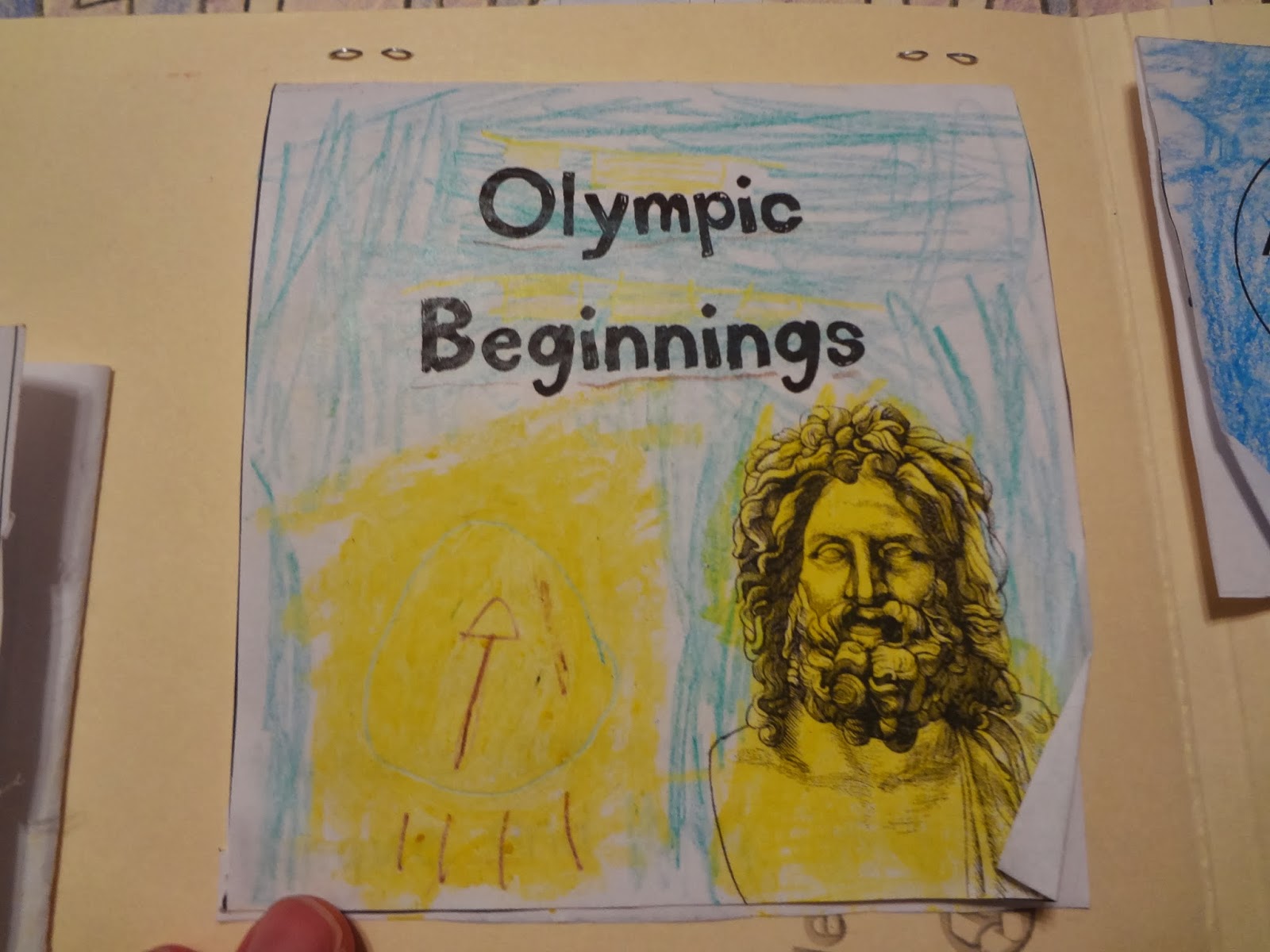This was such a huge project that we've been working on for weeks so I don't feel bad that it gets it's own blog post. When we did lapbooks on Norway and Switzerland those were kind of the main focus even though we did other things on the side (actually now that I think about it we did a lot of other things on the side) but our main learning came through the lapbooks. And when we did Ancient Egypt we weren't really focused on the lapbook so nothing got colored and they were just sort of blah, even though that was Joshua's favorite subject for months! But with Ancient Greek now we have been learning so much, reading so many books, and really trying to do as many hands out things that we can and then coupling those activities with deeper discussion time about what we've been learning - it is easy to ask questions and ponder together about daily life in ancient Greece while you are all working on making pottery, for example. Anyway, here is the lapbook. Each mini-book represents only the tip of the iceberg most times on what we learned on that subject - like Aristotle and Socrates and Alexander the great, or even the Parthenon - but the idea is when the children go back and look through the lapbooks, the books will atleast jolt their memory a little book. It is hard to remember everything when you are only 6 and 4 years old. All the following photos come from Joshua's lapbook.

 |
| Page 1 |
 |
| These two panels opened up as well but we didn't write anything inside. I didn't feel it was important for them at this age to know in detail the things A the G did, just in general. That was enough in itself. |
 |
| This booklet opened up to three pages, each cut in half, so altogether there were 6 "flags" highlighting a different Greek god or goddess. On the front of the flag was a colored drawing or statue or image of some kind of the deity and on the back was a handwritten description of that particular god or goddess. |
 |
| Page 2 |
 |
| Derek said I shouldn't add examples of poor work but actually I think this is funny. Joshua just got distracted and forgot to finish the sentence that a myth is a story people believe in that tells how or why something happened. (And actually, there are three kinds of myths: creation myths, heroic myths, and explanation myths I think.) |
 |
| We were supposed to cut out a piece of paper (or more) and write the name of his favorite myth on it and slip it into this pocket but he said all the myths were he favorite and I should have just written something down but we were in a hurry and I am not always the best at following things through to the very end. |
 |
| Page 3 |
 |
| horse racing |
 |
| discus (although Joshua does know that they didn't throw the discus AT people) |
 |
| long jump. In ancient Greece the jumpers held onto weights to help propel them forward. |
 |
| This is just for your own personal benefit in case you are interested. Obviously Joshua didn't write that. And another FYI, Herakles and Hercules are the same person, but Hercules is the Roman name. |
 |
| Originally this tab mini book had Plato and Phidias instead of Aristotle and Aristarchus but we skipped Plato and went straight to Aristotle after Socrates and in all of our study we hadn't learned anything about Phidias (who we later that week learned was the head architect for the Parthenon and did all the statues up on the pediments of the building) so we just picked Aristarchus who was the first scholar - in ancient Greece at least - who suggested the earth revolved around the sun and not the other way around. We figured it was important to understand that we are not the center of the universe. |
Things we did NOT cover this time around: Pericles, Sophocles or anything to do with Greek Drama, and Paul's missions in Greece - All of those things I am excited to do in 4 years when we are back on the ancients. Maybe that time We'll have Joshua reading some original Plato texts or something - or maybe in 8 years. We'll just have to see.













































I am in owe and amazed as always. I LOVE the lapbooks! You make me want to study these topics and places!
ReplyDeleteD'oh, it is awe, not owe!
ReplyDelete